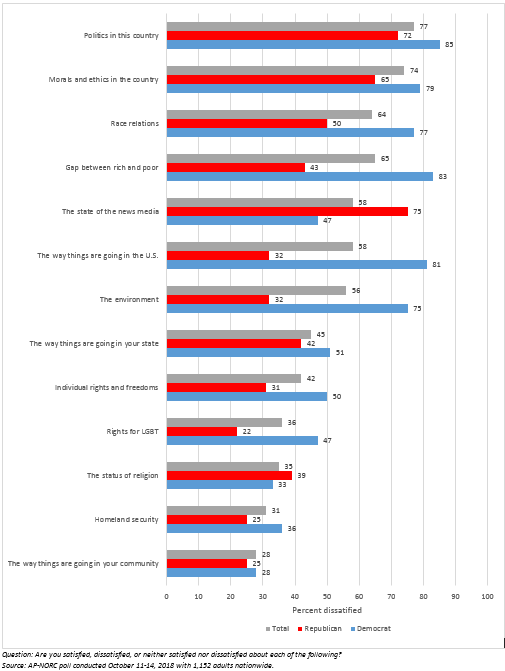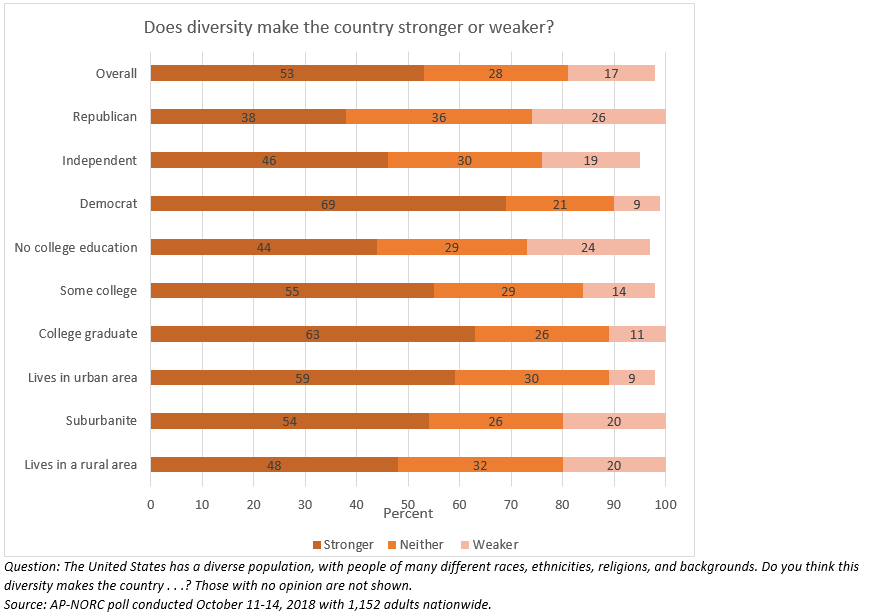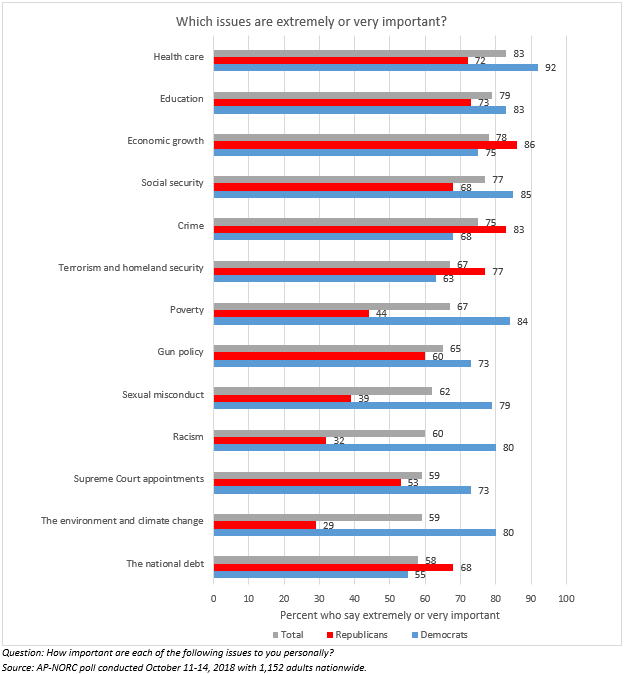
More than 8 in 10 Americans think the country is greatly divided regarding important values, and few expect it to improve anytime soon. In the latest AP-NORC Center survey, large majorities of both Republicans and Democrats are dissatisfied with the state of politics in the United States. And regardless of which party they identify with, most Americans are unhappy with the state of the nation’s morals and ethics.
In an AP-NORC Center survey conducted in June 2016, nearly three-quarters of the public expected Donald Trump’s election to the presidency would make the country even more divided than it was at the time. At the time, 80 percent said the country was greatly divided regarding its most important values. That perception persists nearly two years and half years later with 84 percent saying the country is greatly divided.
However, asked about how things are going in the country in general, 81 percent of Democrats say they are dissatisfied, but only 33 percent of Republicans agree. Republicans are also inclined to have a more positive view of the country’s direction: 74 percent say the country is heading in the right direction, while 88 percent of Democrats say it is moving in the wrong direction.
Looking at their own communities, both Republicans and Democrats are largely satisfied with the state of affairs locally.
The level of dissatisfaction with other issues also varies by party identification. Democrats are particularly unhappy with the gap between rich and poor in the U.S., the condition of the environment, and the state of the country’s race relations. Republicans are generally more satisfied with various aspects of life in the United States, with one large exception: 75 percent are dissatisfied with the state of the country’s news media.

Although the country is seen as divided on values, most Americans consider the country’s diverse population a benefit to the United States. More than half say the variety of people makes the country stronger, while less than a fifth percent say it weakens the country. Nearly 3 in 10 say diversity has no effect one way or the other.
However, differences emerge by party identification, gender, location, education, and race. Democrats are more likely to say having a population with various backgrounds makes the country stronger compared to Republicans or independents. Urbanites and college educated adults are more likely to say having a mix of ethnicities makes the country stronger, while people living in rural areas and less educated people tend to say diversity has no effect or makes the country weaker.

Healthcare, education and economic growth are the top issues considered especially important by the public. While there are many issues that Republicans and Democrats give similar levels of importance to (trade, foreign policy and immigration), there are several concerns where they are far apart. For example, 80 percent of Democrats say the environment and climate change is extremely or very important, and only 28 percent of Republicans agree. And while 68 percent consider the national debt to be extremely or very important, only 55 percent of Democrat regard it with the same level of significance.

Forty percent of the public approves of how President Trump is handling his job, and 59 percent disapprove, nearly the same as in the last AP-NORC Center survey. Trump gets his best rating for his stewardship of the economy: 50 percent approve and 49 percent disapprove. Expected partisan differences emerge: 90 percent of Republicans approve while 76 percent of Democrats and 57 percent of independents disapprove of his handling of the economy.
The public is least positive about how Trump has been dealing with health care: 37 percent approve and 62 percent disapprove. And about 40 percent approve of Trump’s handling of immigration, trade, foreign policy, and Supreme Court nominations.
The nationwide survey was conducted October 11-14, 2018 using the AmeriSpeak® Panel, the probability-based panel of NORC at the University of Chicago. Online and telephone interviews using landlines and cell phones were conducted with 1,152 adults. The margin of sampling error is plus or minus 4.0 percentage points for all respondents.



